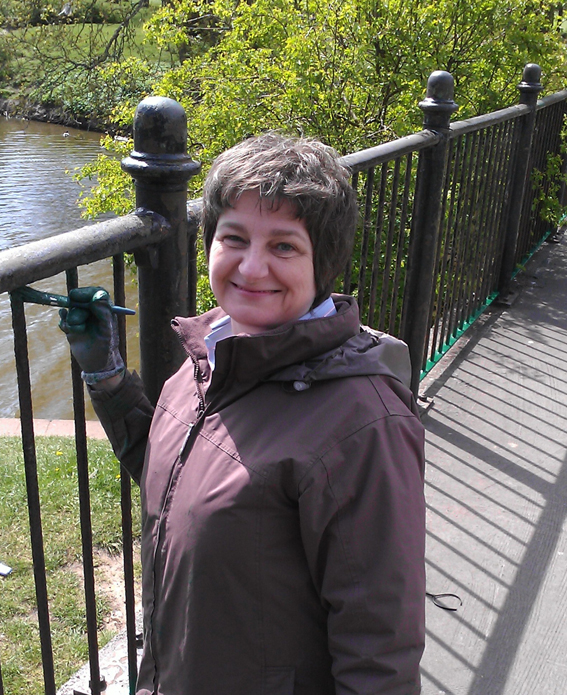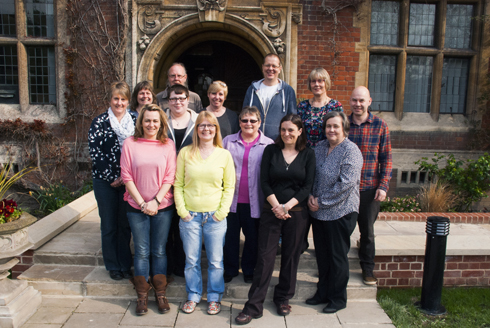Project Development Grants and Funding
News and Information
Faith Action - Gateway grants for Churches, Chapels and Meeting Houses
"The Gateway Grant Programme offers grants of between £3,000 and £10,000 towards project development and investigative work up to RIBA planning stage 1, to support churches preparing for a major project, and in developing their project to the point at which they can approach a major grant funder. Grants will never exceed 50% of the project costs for this phase.
Follow the link to review the full eligibility criteria, to read the guidance note, and to online application form here."
National Lottery Reaching Communities Fund (England)
"This fund make grants of over £10,000 for up to 5 years to organisations with ideas that would enable communities to thrive. The initial application involves the idea only. Salaries, equipment, refurbishment and capital costs can all be funded. There are no deadlines."
Reaching Communities
The Steel Charitable trust
The Trustees make discretionary grants where they believe that their contribution will make a real difference. Applications are welcome from eligible applicants from all areas of the UK; however, since the Settlors - the late Mr and Mrs Steel - lived in Bedfordshire, applications from Bedfordshire generally, and Luton specifically, are particularly encouraged.
More information here
Rank Foundation Pebble Grants
"This is our small funding stream for UK registered charities and recognised churches which are raising money for projects where the total cost is less than £1million. If you are raising money for a particular project for which the mainstay is capital costs (building work, refurbishment or the purchase of long-term equipment) or a one-off short-term activity (such as an annual respite break or holiday for disadvantaged young people) and have already raised a third of the total costs, you may be eligible for this.
We are currently accepting applications for our May 2019 trustees’ meeting."
More info here.
From The Historic Religious Buildings (HRBA) Alliance:
AllChurches Trust announces £13m grants for churches and charities:
-
Allchurches Trust is one the of UK's largest charitable trusts and is the charitable owner of the Ecclesiastical Insurance Group. Over the past three years, Allchurches has given £34.6 million in grants. Last year it gave grants totaling more than £13 million to charities and church groups all over the UK and Eire, empowering them to tackle homelessness, isolation, poverty, addiction and issues of mental health. It also helped restore historic buildings and develop projects in schools, colleges, hostels and prisons.
On the 27 January their Chairman Sir Philip Mawer announced grants from its most recent funding round and invited more local churches and charities to ask for Allchurches’ support saying “If you are actively involved in helping others then perhaps Allchurches can help you”.
Latest grants include:- Sunderland’s “Canny Space” – the Churches Conservation Trust is turning a neglected Georgian church into a creative centre for the most deprived area of the city. Allchurches is funding three apprenticeships in traditional building skills
- St Michael and All Angels Church, Harrow Weald, is building a new community centre to expand its offer of English classes, debt and employment advice, night shelter and other services
- Northampton Roman Catholic Cathedral’s new Cathedral Centre will allow its growing congregation to address the area’s most pressing needs, foremost of which are poverty and addiction
£210,000 funding boost to community projects:
Minister for Faith and Integration Lord Bourne has announced a £210,000 funding boost to be shared among Near Neighbours community projects in England managed by the Church Urban Fund.
Near Neighbours brings together diverse communities and different faiths, through a range of activities that improve their lives and the local community in which they live.
www.gov.uk/government/news/210000-funding-boost-to-community-projects -
Community Projects Training from FaithAction:
FaithAction is a network of faith-based and community organisations serving their communities by delivering public services (such as childcare, health and social care, housing and welfare to work). They are now offering training days to faith-based organisations geared to their needs on project management, event management, presentation and facilitation and fast track to funding. All sessions take place in Dagenham Essex.
www.faithaction.net/tevents/masterclasses -
Livability – a national Christian disability and community engagement charity.
"We deliver disability services, community projects, education and training resources that promote inclusion and wellbeing. We also share our expertise internationally. We are an enabling network of people, tackling barriers in society to make community livable".




Web.jpg)




